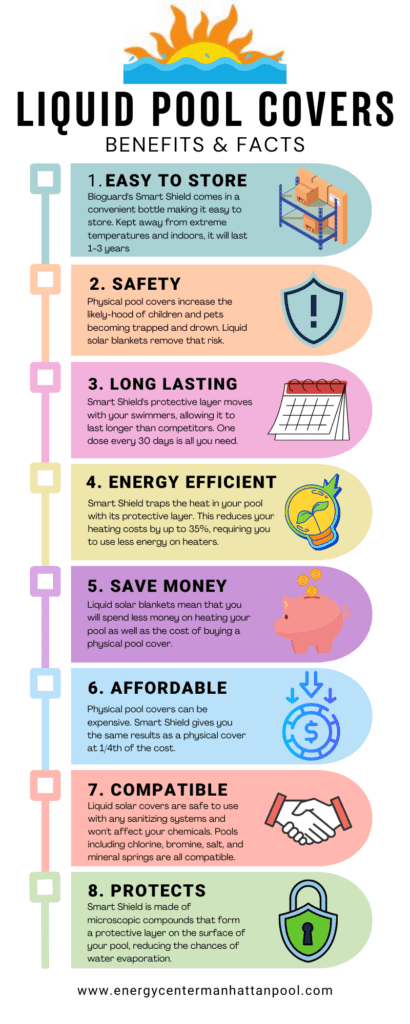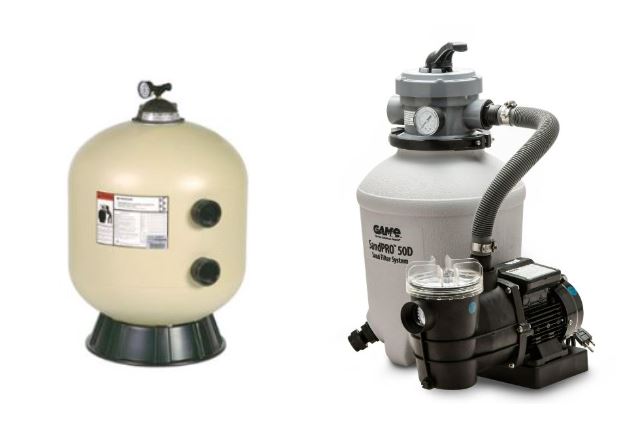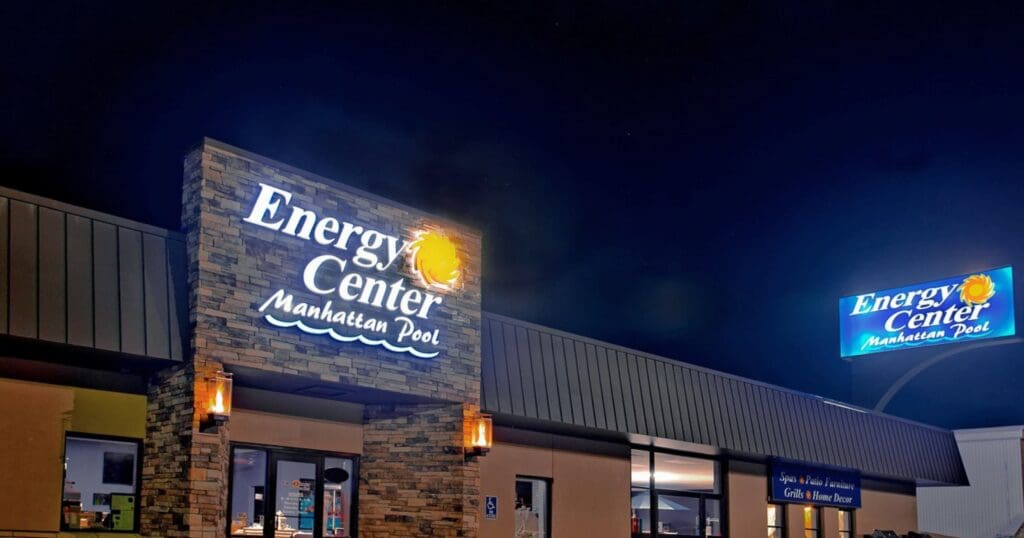Have you ever wondered, “How does rain affect my pool water chemistry?” Well, there are several factors that you should consider. Before rainwater begins to fall, it is pretty clean. But, as it falls through the sky, it picks up little particles of dust, pollen, etc. The more rain you get, the more your pool water will be affected. Just a few sprinkles will not do any harm. But, a heavy downpour or a steady rain will more than likely affect the pool water chemistry. At Energy Center-Manhattan Pool, we are happy to help you with getting your pool chemistry just right.
Dilution begins after heavy rain
Just like an ice cube waters down a drink, rain waters down your pool. We can control how much ice we put in our glass, but we cannot control how much rain falls into our pool water. Rain tends to lower the levels of all the different aspects of your pool water—salt, chlorine, calcium, alkalinity; it can also lower the pH if you have steady rain for several days. On top of that, rain can create the right conditions for algae to begin growing in your pool water.
Dilemma in progress
The dilemma is getting the levels in your pool just right. If you have a saltwater pool, constant rain can lower the salt level in the water.
Did you know that chlorine attaches to each little dirt particle? It gets rid of the dirt but is then used up. So, the more dirt particles that are in the pool, the faster your chlorine levels will drop due to the chlorine being used up. Which is why we often recommend that homeowners shock their pool after heavy rains.
The way the rainwater affects the calcium level in your pool water depends on if you have soft or hard water. If you have soft water, heavy rains will cause the calcium levels to drop. If you have hard water, the rainwater may be a blessing in disguise, causing the hardness level to be lowered.
Heavy rain will also cause the alkalinity level to drop. If the alkalinity level stays too low over a long period of time, it may start to corrode your pool equipment.
The ideal pH level for your pool water is around 7.5. When your pool water receives heavy rains, the pH level tends to drop below that ideal number.
Deliverance for your pool water
There is a solution! Now that we have seen how rain affects your pool water chemistry, you’ll know that checking the pool chemistry levels on a regular basis is important to prevent damage to your pool. At Energy Center-Manhattan Pool, we carry all of the products needed to balance and stabilize your pool water. BioGuard® has an outstanding line of balancing and stabilizing products. If you have questions about your pool water chemistry, call us today at 785-776-5118. Come find your gathering place at Energy Center-Manhattan Pool!




